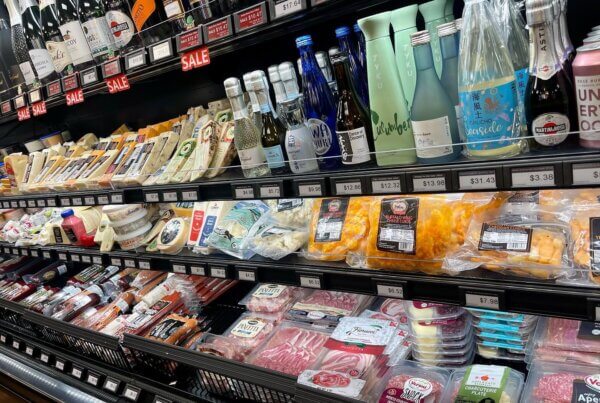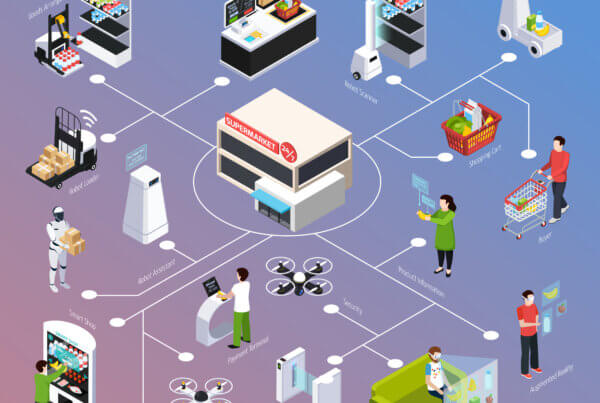In a time marked by accelerated technological advancements and an ever-increasing demand for efficiency and sustainability, the concept of smart factories has emerged as a game-changer in the world of manufacturing. These innovative facilities, powered by cutting-edge technologies, are reshaping traditional production processes and offering countless benefits to businesses and consumers alike.
“The manufacturing practice adopted by smart factories – smart manufacturing – is the most optimized application of technologies arising from the fourth industrial revolution known as Industry 4.,” states Tulip, a frontline operations developer. “When fully realized, smart factories use fully integrated, collaborative manufacturing systems to make operations flexible, adaptable, and optimizable.”
A smart factory, often referred to as Industry 4.0, is a highly automated and data-driven manufacturing facility that leverages advanced technologies such as the Internet of Things (IoT), Artificial Intelligence (AI), machine learning, and data analytics to optimize production processes. These factories aim to improve operational efficiency, enable real-time decision-making, reduce waste, and enhance product quality.
As reported by Canadian Grocer, The robot at Deloitte Canada’s Smart Factory in Montreal is not only operating on its own, picking differently sized items off a pallet, it’s also learning from the experience. Deloitte plans to bring clients to the facility – which it bills as the first of its kind in Canada – to show them what’s possible with new technologies and allow them to better adapt to labour shortages and supply chain disruptions. “The more efficient we can make your operations, the more flexible you’ll be to adapt to disruptions and shocks that may occur in the supply chain in the future,” said Alan Taliaferro, a partner at Deloitte Canada and the leader of the Montreal Smart Factory, which officially opened in January.
Electronic Smart Labels are a critical component of smart factories, offering a seamless way to monitor and manage inventory, track products, and provide valuable information throughout the supply chain. Danavation’s® Digital Smart Labels™ can make a difference in warehousing specifically in reference to product traceability.
Digital Smart Labels™ can include detailed information about each product, including its origin, production date, and expiration date. This feature enhances quality control and safety measures, especially in industries like food and pharmaceuticals. In addition, locations who have both retail and warehousing at the same location can take advantage of displaying Quantity on Shelf as part of their Digital Smart Label™ display with updates to the shelf made hourly, or sooner, to suit the needs of the business.
Product Traceability: Digital Smart Labels™ can feature detailed information about each product, including its origin, production date, and expiration date. This traceability enhances quality control and safety measures, especially in industries like food and pharmaceuticals.
The World Economic Forum’s Global Lighthouse network of companies demonstrates how digitally infused operations drive productivity and sustainable growth. For example, digital machines and management applications increase output. But at the same time, new business models and unlocked capacity optimize resources and empower workers with digital applications. These measures enhance infrastructure and minimize environmental impact without massive capital investment.
Smart factories offer a multitude of benefits and advantages from efficiency to sustainability for businesses across multiple industries.
Increased Efficiency: Automation and data-driven decision-making lead to improved operational efficiency, reduced downtime, and enhanced resource utilization. This leads to cost savings and increased productivity.
Quality Improvement: Smart factories employ sensors and analytics to monitor product quality continuously. This proactive approach reduces defects and lowers the likelihood of product recalls.
Sustainability: By optimizing resource usage and reducing waste, smart factories contribute to sustainability goals. They can track energy consumption and emissions, allowing businesses to minimize their environmental footprint.
Agility and Customization: The flexibility of smart factories allows for rapid product changes and customization, meeting ever-changing customer demands with ease.
The advent of smart factories has significant benefits for consumers in terms of real-time data and quality control, to list just a few.
Quality Assurance: Improved quality control in smart factories means consumers can expect consistently high-quality products, reducing the risk of purchasing defective items.
Inventory Accuracy: Real-time inventory data ensures that products are available when and where consumers need them, reducing the inconvenience of out-of-stock situations
Personalization: Smart factories enable the creation of customized products tailored to individual preferences, offering consumers unique and personalized experiences.
Smart factories, complimented by Danavation’s® Digital Smart Labels™ and cutting-edge technologies, are transforming the manufacturing landscape. “Companies must tailor their strategies to address unique issues and unlock value through smart factory solutions,” explains NTT Data. “Customization of those solutions is key to making sure the smart factory aligns with organizational needs.”



